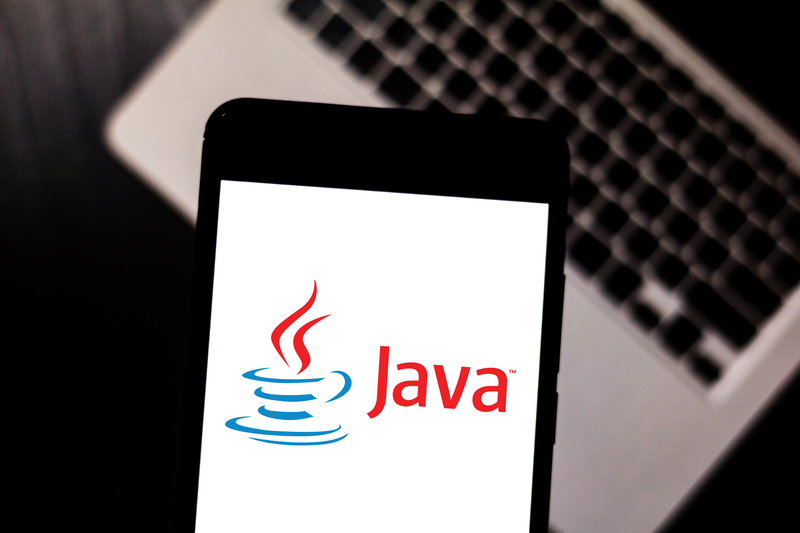
Enterprise tech buyers reveal their 2025 spending priorities
A new report from Crane Venture Partners looks at the priorities of senior executives who collectively influence $3–$4 billion in annual technology spending.
Respondents include leaders from major companies such as Microsoft, Bloomberg, Procter & Gamble, Kohl's, Arm, Comerica Bank, and NBC Universal. The report finds that while 100 percent of surveyed executives believe AI will shape enterprise operations, only 10 percent have so far fully integrated AI into their workflows.

Deepgram launches improved AI-based voice transcription for enterprises
Accurate voice transcription is important for enterprises, whether it's to ensure appropriate responses or create accurate records.
However some situations make this challenging to achieve -- where there are multiple speakers or noisy backgrounds, for example. With the launch today of Nova-3, its most advanced speech-to-text (STT) model to date, Deepgram is looking to offer greater accuracy along with self-service customization to tailor results for industry-specific needs.

Enterprises under growing pressure to demonstrate readiness for cyber threats
A new study commissioned by Immersive Labs shows 96 percent of cyber leaders believe effectively communicating cyber-readiness to senior leadership and boards will be crucial in 2025, driven by regulatory compliance requirements and an increase in attacks.
The survey conducted by Sapio Research reveals that 49 percent of those surveyed report having experienced a cyberattack in the past year.

Incorporating 'secure by design' into the software supply chain [Q&A]
Developers historically have not been all that security savvy, but as software supply chain security becomes a larger and larger problem every day, enterprises are going to need to secure packages before they are put into production environments.
We spoke to Phylum CEO, Aaron Bray, to learn more about 'secure by design' and how it can make sure developers are being taught security as part of their development and training process and are also being provided with the necessary resources to code securely from the beginning.

GenAI is changing enterprise priorities with privacy a major concern
The latest Enterprise Cloud Index (ECI) survey from Nutanix shows that that while 80 percent of organizations have already implemented a GenAI strategy, implementation targets vary significantly.
Organizations are eager to leverage GenAI for productivity, automation, and innovation, but they also face critical hurdles in the form of data security, compliance, and IT infrastructure modernization. 95 percent of respondents agree that GenAI is changing their organization’s priorities

Shaping the future of cloud security with CNAPP [Q&A]
As cloud environments become complex, security teams face increasing challenges in detecting, prioritizing, and addressing risks.
While cloud security posture management (CSPM) tools were created to provide visibility into cloud configurations and cloud workload protection platforms (CWPP) to manage threats to cloud workloads, they created gaps in providing holistic context that enables efficient risk management and didn't extend across the full software development life cycle (SDLC).

Enterprises using inaccurate data to make business decisions
According to a new study of 750 business and tech leaders, 58 percent say key business decisions are based on inaccurate or inconsistent data most of the time, if not always.
The research from IT consulting and digital services provider SoftServe shows the majority don’t understand the value of their data with 65 percent of all respondents believing no one at their organization understands all the data collected and how to access it.

Over 60 percent of enterprise cybersecurity incidents relate to known risks
A new Cloud Risk Exposure Impact Report from ZEST Security shows that 62 percent of incidents are directly related to risks the security team had previously identified, researched fixes for, and had open tickets for remediation in the backlog.
The survey of over 150 security decision makers working in large US enterprises reveals that it takes 10 times longer to remediate vulnerabilities than it takes for attackers to exploit them, highlighting a significant advantage for attackers.

Why adopting AI needs a holistic approach [Q&A]
It's an increasingly rare system these days that doesn't claim to have incorporated artificial intelligence in some form or another.
But when implementing AI it's important to look beyond the hype and ensure that it can deliver real value for the business. We spoke to Ajay Kumar, CEO of SLK Software, about the need for a holistic approach to allow enterprises to leverage AI for solving complex business challenges.

The challenges of managing non-human identities [Q&A]
Non-human identities (NHIs) outnumber human identities by between 10 and 50 times, but the industry lacks solutions to properly address this hole in the security perimeter.
Traditional IAM solutions and best practices aren't sufficient when it comes to managing NHIs, as evidenced by some recent breaches that have stemmed from exploitation of NHIs.

The role of private clouds in enterprise data strategy [Q&A]
As AI reshapes business operations, companies are facing new challenges around cost uncertainty, security, and data integrity. The rise of hybrid cloud strategies -- combining private clouds with public infrastructure -- is becoming a key approach to addressing these concerns.
While enterprises focus on cost control, safeguarding sensitive corporate data, and preventing AI-driven data leakage, they are also trying to leverage LLMs to exploit data in the public cloud while retaining sensitive data in private clouds that they control.

Enterprises consider ditching Oracle Java over cost worries
The percentage of organizations considering alternatives to Oracle Java has jumped significantly from 72 percent in 2023 to 88 percent today.
The Azul 2025 State of Java Survey and Report finds 99 percent of enterprises are using Java. The top reasons given for considering a migration away from Oracle Java include cost (42 percent), preference for open-source (40 percent), Oracle sales tactics (37 percent), uncertainty created by ongoing changes to pricing and licensing (36 percent), and restrictive Oracle policies (33 percent).

The human-centric approach to moving to the cloud [Q&A]
Over the past decade, cloud computing has emerged as a transformative force, promising unprecedented efficiency and scalability.
However, despite the rush for businesses to adopt this technology, many cloud projects still fail to meet their stated objectives

80 percent of organizations are adopting passkeys but many face challenges with older systems
A new report finds that 80 percent of organizations are using or planning to adopt passkeys, as they offer a significant reduction in risks like phishing and credential stuffing, compared to traditional passwords.
However, the study from Keeper Security also finds that 40 percent of businesses continue to rely on hybrid authentication systems that blend both passwords and passkeys. These hybrid setups are often needed due to the use of legacy systems and specialized applications that have yet to support passkeys.

CISOs get more time in the boardroom but struggle with budgets
A new report from Splunk shows 82 percent of CISOs now report directly to the CEO, up from 47 percent in 2023, and 83 percent participate in board meetings somewhat often or most of the time.
However, only 29 percent of CISOs say they receive the proper budget for cybersecurity initiatives and accomplishing their security goals, compared to 41 percent of board members who think their cybersecurity budgets are adequate.
